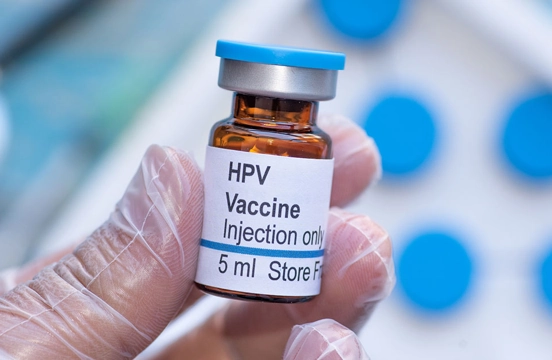
Human Papillomavirus (HPV) is one of the most common sexually transmitted infections worldwide.
Every year, nearly 290 million men and women are infected with HPV.
In most cases, the infection resolves spontaneously without symptoms; however, certain high-risk types may lead to cervical, anal, oral, and genital cancers.
Today, effective vaccines and modern treatment methods are available against HPV.
With advanced diagnostic capabilities, experienced gynecologists, and rising public awareness, Turkey has become one of the leading centers in HPV prevention and treatment in its region.
HPV is a DNA virus with more than 200 identified types.
Some cause harmless warts (condylomas),while others can trigger cellular changes that may progress to cancer.
HPV Types
HPV spreads primarily through sexual contact — vaginal, anal, or oral intercourse.
It can also rarely be transmitted from mother to baby during childbirth.
Risk factors include:
HPV often causes no noticeable symptoms.
However, when symptoms occur, they may include:
In men, warts may appear on the penis, scrotum, or around the anus.
HPV is most commonly detected during routine gynecological screening.
Diagnostic Methods
HPV DNA testing is widely available in private laboratories and university hospitals across Turkey.
There is currently no medication that directly eliminates HPV.
However, in most healthy individuals, the immune system clears the virus naturally within 1–2 years.
Treatment focuses on managing lesions and symptoms caused by the virus.
a) Treatment of Genital Warts
These procedures are usually performed under local anesthesia and leave no scars.
b) Treatment of Cervical Lesions
If abnormal cervical cells are detected:
These procedures preserve fertility and prevent progression to cancer.
c) Immune System Support
The most effective way to prevent HPV infection is vaccination.
HPV vaccines protect both women and men from infection and reduce the risk of HPV-related cancers.
Available Vaccines in Turkey
Vaccination Schedule
Vaccination before sexual activity provides more than 95% protection.
Who Should Get Vaccinated?
In Turkey, the HPV vaccine is currently available for purchase at pharmacies.
The Ministry of Health is conducting research to include HPV vaccination in the national immunization program.
Turkey offers world-class healthcare standards in HPV testing and treatment, with advantages such as:
As a result, Turkey is a trusted destination for both local and international patients.
HPV is responsible for 99% of cervical cancer cases worldwide.
According to the World Health Organization (WHO),regular screening and vaccination can prevent nearly all HPV-related cancers.
Routine Pap Smear and HPV DNA testing can reduce cervical cancer mortality by up to 80%.
Women with sexual activity should undergo screening every 3 years.
HPV is largely preventable through early screening and vaccination.
There’s no direct cure, but in most people the immune system clears the virus naturally within 1–2 years.
It’s not recommended during pregnancy. Individuals with severe allergic reactions should consult their doctor.
No, vaccination is preventive. Testing is only needed if infection is suspected.
No, the vaccine has no negative impact on fertility or sexual health.
Yes. Vaccination protects men against genital warts, anal, and throat cancers, and prevents virus transmission.
Yes. Turkish clinics follow international medical standards and offer safe, high-quality care.
HPV is one of the most common yet preventable infections worldwide.
Through regular screening, early diagnosis, and vaccination, both women and men can protect themselves from HPV and its complications.
With its advanced healthcare infrastructure, expert physicians, and growing vaccination initiatives,
Turkey stands as a regional leader in HPV prevention and treatment.
Remember: HPV is not destiny — awareness and timely prevention make all the difference.